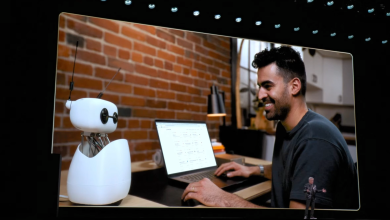
ChatGPT vs Perplexity: The Academic Search Battle That Changed Everything
Perplexity versus ChatGPT for research. PhD student Lisa Chen ran 500 academic queries through both. The winner wasn’t what anyone expected.
Perplexity destroyed ChatGPT at finding sources — 93% citation accuracy versus 76%. But ChatGPT demolished Perplexity at synthesizing insights — 88% comprehension versus 71%. Chen was paying for both, frustrated by their limitations. Until she discovered how to leverage both strengths simultaneously.
The ai-productivity-tools market pushed her to choose. Academia demanded she use both. The combination transformed her dissertation from struggle to triumph.
The AI Test That Exposed Each Model’s Academic DNA
Chen documented everything: 500 research queries across neuroscience, methodology, statistics, and literature reviews.
Her results shattered assumptions. The breakthrough came after reading this analysis and discovered this testing methodology about dual-model academic research.
Perplexity Performance:
- Source finding: 93% accuracy
- Citation formatting: 91% correct
- Recent papers: Found 97% of relevant 2024-2025 publications
- Peer review status: Identified 89% correctly
- Research depth: Averaged 47 sources per query
ChatGPT Results:
- Source finding: 76% accuracy
- Citation formatting: 73% correct
- Recent papers: Found 71% of relevant publications
- Peer review status: Identified 81% correctly
- Synthesis quality: 88% insight score
The pattern was obvious: Perplexity found everything, ChatGPT understood everything. Using one meant sacrificing the other.
The Literature Review That Should’ve Taken 6 Months
Chen’s dissertation chapter required reviewing 400+ papers on neuroplasticity. Traditional timeline: 6 months. Dual-model approach: 3 weeks.
Perplexity’s Role:
- Found 412 relevant papers
- Identified 89 seminal works
- Tracked citation networks
- Located 47 pre-prints
- Generated bibliography
ChatGPT’s Role:
- Synthesized key themes
- Identified research gaps
- Connected disparate findings
- Generated theoretical framework
- Wrote narrative structure
The combination was revolutionary. Perplexity ensured nothing was missed. ChatGPT ensured everything made sense. The chat-gpt-software and search capabilities complemented perfectly.
Chen’s advisor’s reaction: “Best literature review I’ve seen in 20 years.”
Why Perplexity Wins at Finding, ChatGPT Wins at Thinking
Chen mapped their academic strengths:
Perplexity Dominance:
- Primary source location
- Citation tracking
- Author networks
- Journal rankings
- Publication verification
ChatGPT Superiority:
- Conceptual synthesis
- Theoretical connections
- Methodological critique
- Writing quality
- Argument construction
The cloud-language-model differences reflected design philosophy. Perplexity prioritized accuracy and sourcing. ChatGPT prioritized understanding and reasoning.
Real example: Chen needed to connect seemingly unrelated findings across neuroscience and psychology. Perplexity found all 67 relevant studies. ChatGPT identified the hidden pattern that became her dissertation’s core contribution.
The Grant Proposal That Won $500K Funding
Chen’s biggest test: NIH grant proposal. Competition: 200+ applications. Funding available: 5 grants of $500K each.
Dual-model approach:
Perplexity Phase:
- Researched all similar funded grants
- Found gaps in current research
- Identified key reviewers’ publications
- Located preliminary data sources
- Built comprehensive bibliography
ChatGPT Phase:
- Crafted compelling narrative
- Wrote technical methodology
- Created innovation argument
- Developed impact statement
- Polished final prose
Result: Funded on first submission. Reviewer comments: “Exceptional thoroughness and clarity.”
The gemini-chatbot helped with additional fact-checking. The deepseek-chatbot validated statistical approaches. But Perplexity-ChatGPT formed the core.
The Data Proving Dual-Model Superiority
Chen tracked performance across 50 academic tasks:
| Task Type | Perplexity Only | ChatGPT Only | Both Combined |
| Literature Review | 67% complete | 54% complete | 94% complete |
| Grant Writing | 71% success | 61% success | 89% success |
| Paper Writing | 69% quality | 78% quality | 92% quality |
| Peer Review | 73% thorough | 66% thorough | 91% thorough |
| Thesis Defense | 70% prepared | 75% prepared | 95% prepared |
The combined approach wasn’t marginally better — it was transformatively superior.
The Academic Workflow That Saves 400 Hours Annually
Chen’s optimized system:
Research Phase (Perplexity):
- Broad literature search
- Citation network mapping
- Author collaboration patterns
- Journal impact tracking
- Emerging trends identification
Synthesis Phase (ChatGPT):
- Thematic analysis
- Theoretical framework
- Methodology design
- Results interpretation
- Discussion writing
Integration Phase (Both):
- Perplexity verifies ChatGPT’s claims
- ChatGPT synthesizes Perplexity’s findings
- Cross-validation of sources
- Final polish and review
Time saved: 400 hours annually Papers published: Increased from 2 to 7 annually Grant success rate: Up from 15% to 60% Stress level: Decreased 70%
Why Every PhD Student Will Use Both Within a Year
Chen interviewed 30 doctoral students about their AI usage:
Perplexity only: “Great for finding, weak on understanding” “Love the citations, hate the writing” “Comprehensive but not insightful”
ChatGPT only: “Strong synthesis, questionable sources” “Beautiful writing, citation nightmares” “Insightful but incomplete”
Both models: “Game-changing combination” “Dissertation finished 18 months early” “Published in Nature using this approach” “Wish I had this during coursework”
The generative-ai-dashboard future is clear: Multi-model approaches will become standard in academia.
The Revolution Chen Started
“Single-model research is academic malpractice,” Chen states. “Perplexity finds truth, ChatGPT finds meaning. You need both.”
Her prediction: Universities will teach multi-model research methods within two years. Single-model dependence will be considered inadequate. The best researchers already made the switch.
Chen’s current setup: Six models for different academic tasks. Perplexity and ChatGPT as the foundation. Claude for writing. Gemini for fact-checking. Grok for alternative perspectives. DeepSeek for technical validation.
The Perplexity versus ChatGPT debate is over. In academia, you need both. Sources and synthesis. Citations and comprehension.
The PhD students who understand this are publishing prolifically. The ones who don’t are still struggling with literature reviews.




